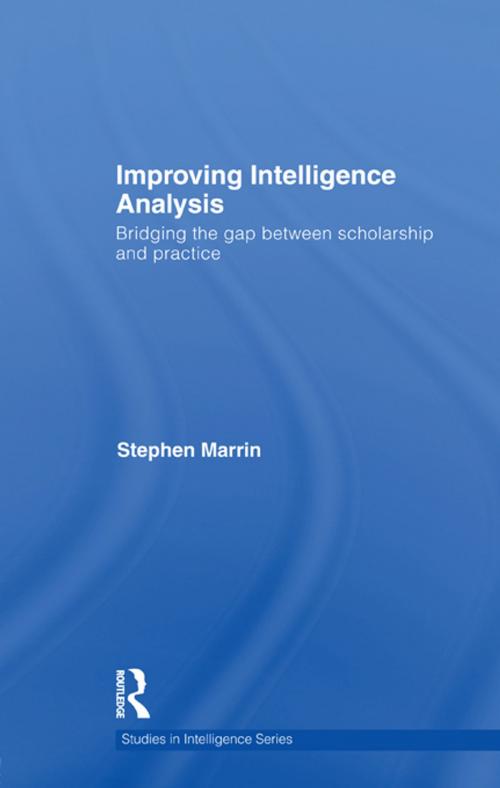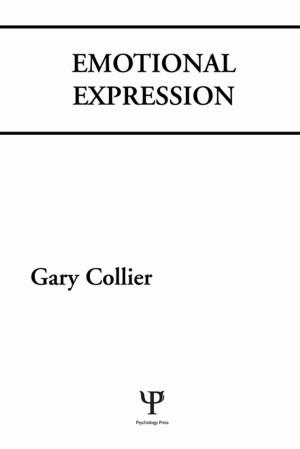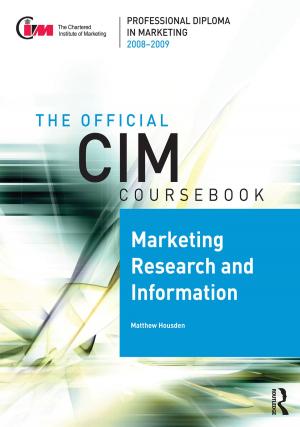Improving Intelligence Analysis
Bridging the Gap between Scholarship and Practice
Nonfiction, Social & Cultural Studies, Political Science, International, International Security, International Relations| Author: | Stephen Marrin | ISBN: | 9781136680472 |
| Publisher: | Taylor and Francis | Publication: | August 21, 2012 |
| Imprint: | Routledge | Language: | English |
| Author: | Stephen Marrin |
| ISBN: | 9781136680472 |
| Publisher: | Taylor and Francis |
| Publication: | August 21, 2012 |
| Imprint: | Routledge |
| Language: | English |
This book on intelligence analysis written by intelligence expert Dr. Stephen Marrin argues that scholarship can play a valuable role in improving intelligence analysis.
Improving intelligence analysis requires bridging the gap between scholarship and practice. Compared to the more established academic disciplines of political science and international relations, intelligence studies scholarship is generally quite relevant to practice. Yet a substantial gap exists nonetheless. Even though there are many intelligence analysts, very few of them are aware of the various writings on intelligence analysis which could help them improve their own processes and products. If the gap between scholarship and practice were to be bridged, practitioners would be able to access and exploit the literature in order to acquire new ways to think about, frame, conceptualize, and improve the analytic process and the resulting product. This volume contributes to the broader discussion regarding mechanisms and methods for improving intelligence analysis processes and products. It synthesizes these articles into a coherent whole, linking them together through common themes, and emphasizes the broader vision of intelligence analysis in the introduction and conclusion chapters.
The book will be of great interest to students of intelligence studies, strategic studies, US national security, US foreign policy, security studies and political science in general,as well as professional intelligence analysts and managers.
This book on intelligence analysis written by intelligence expert Dr. Stephen Marrin argues that scholarship can play a valuable role in improving intelligence analysis.
Improving intelligence analysis requires bridging the gap between scholarship and practice. Compared to the more established academic disciplines of political science and international relations, intelligence studies scholarship is generally quite relevant to practice. Yet a substantial gap exists nonetheless. Even though there are many intelligence analysts, very few of them are aware of the various writings on intelligence analysis which could help them improve their own processes and products. If the gap between scholarship and practice were to be bridged, practitioners would be able to access and exploit the literature in order to acquire new ways to think about, frame, conceptualize, and improve the analytic process and the resulting product. This volume contributes to the broader discussion regarding mechanisms and methods for improving intelligence analysis processes and products. It synthesizes these articles into a coherent whole, linking them together through common themes, and emphasizes the broader vision of intelligence analysis in the introduction and conclusion chapters.
The book will be of great interest to students of intelligence studies, strategic studies, US national security, US foreign policy, security studies and political science in general,as well as professional intelligence analysts and managers.















